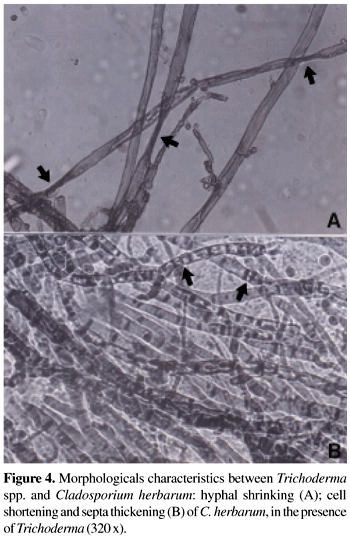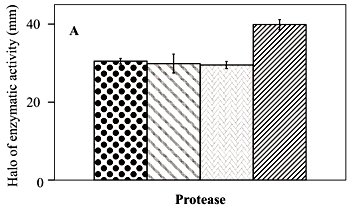The verrucose caused by Cladosporium herbarum reduces production and quality of Passion fruit (Passiflora edulis Sims.), a largely consumed tropical fruit. This work aimed to investigate the antagonism of Trichoderma species (T. polysporum, T. koningii, T. viride and T. harzianum) against Cladosporium herbarum, and to study the production of extracellular hydrolytic enzymes by the pathogen and the antagonists. The results showed considerable antagonistic potential for the biocontrol of C. herbarum isolates by all Trichoderma species, except T. koningii. The most distinguished effect was observed for T. polysporum. In relation to the pattern of esterase obtained by electrophoresis in poliacrylamyde gel, the major activity presented by the isolates was observed after five days of incubation. The C. herbarum isolates produced extracellular enzymes, lipase, pectinase, cellulase, and protease, all possibly related to the infection process. Amylase excretion, not known to be associated with phytopathogens, was detected in Trichoderma species, but not in C. herbarum. In addition to amylase, all Trichoderma species tested produced also extracellular cellulase and pectinase, except T. koningii in relation to the latter enzyme. The demonstration of various esterase isoenzymes in zymograms of the Trichoderma species and C. herbarum isolates was markedly improved by washing the mycelia with detergents or EDTA. This fact suggested that a major fraction of extracelular enzymes may remain attached to outside fungal cell wall after being excreted.
passion fruit; biological control; extracellular enzymes; fungi









